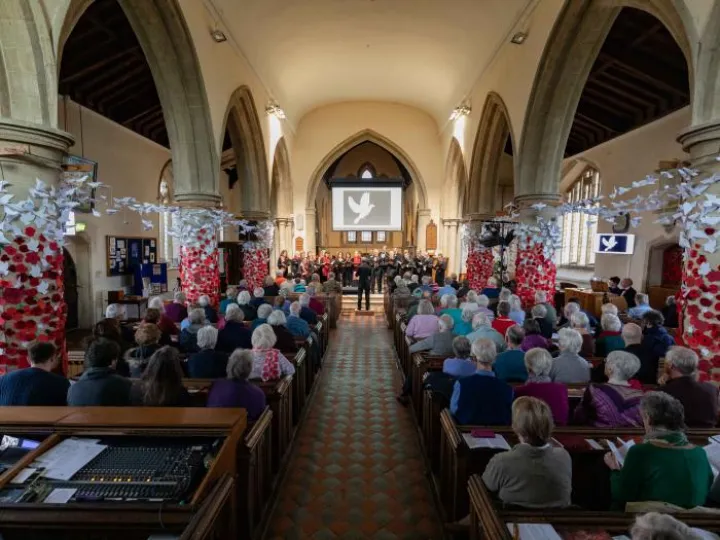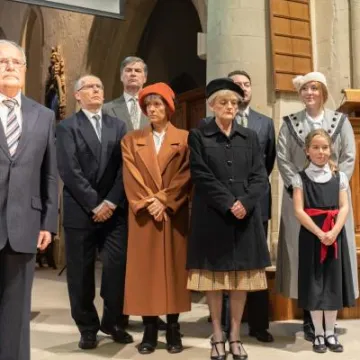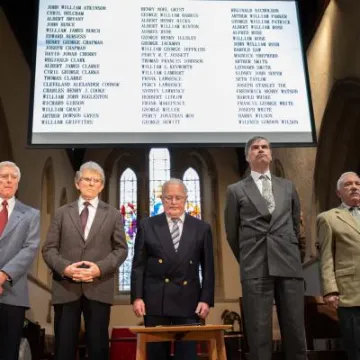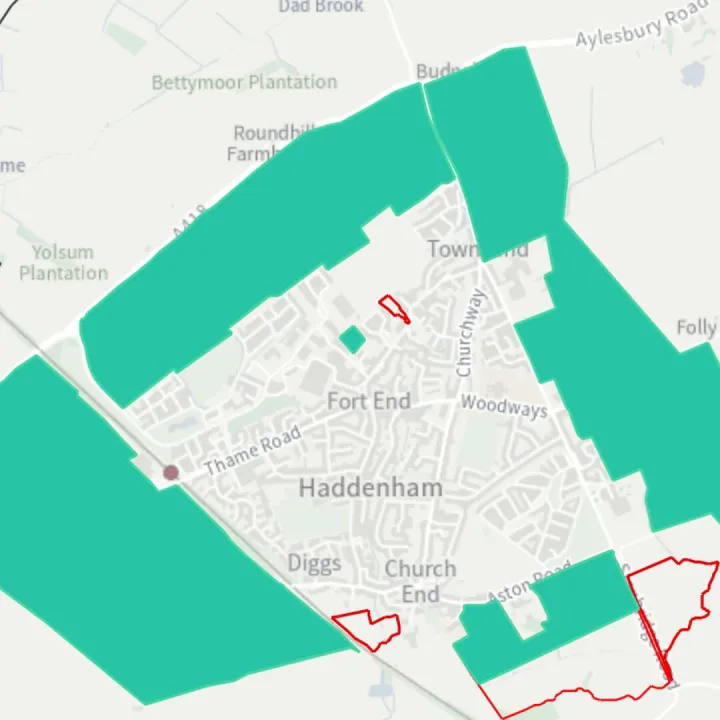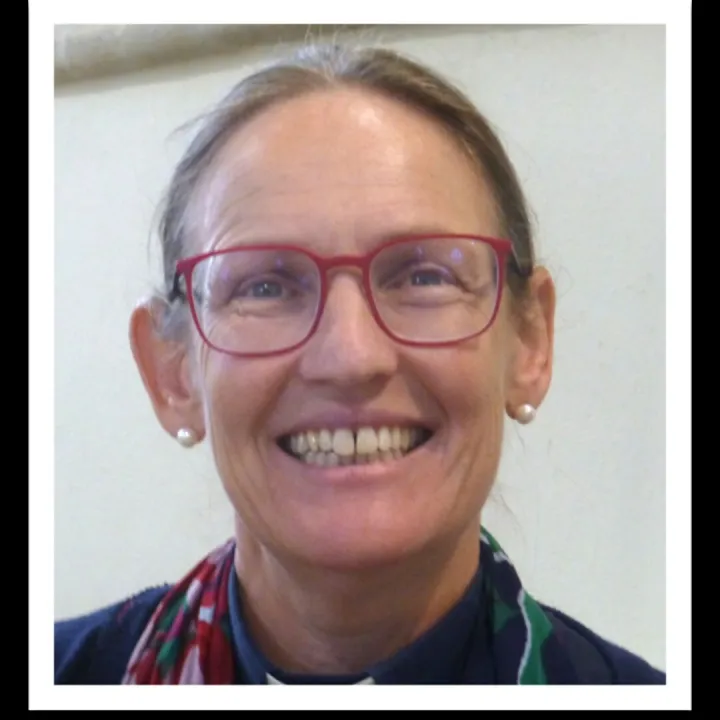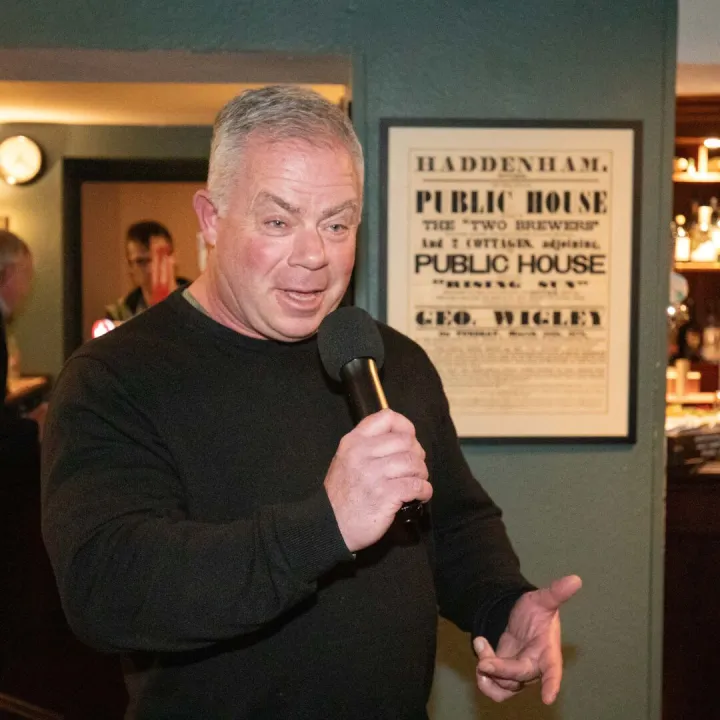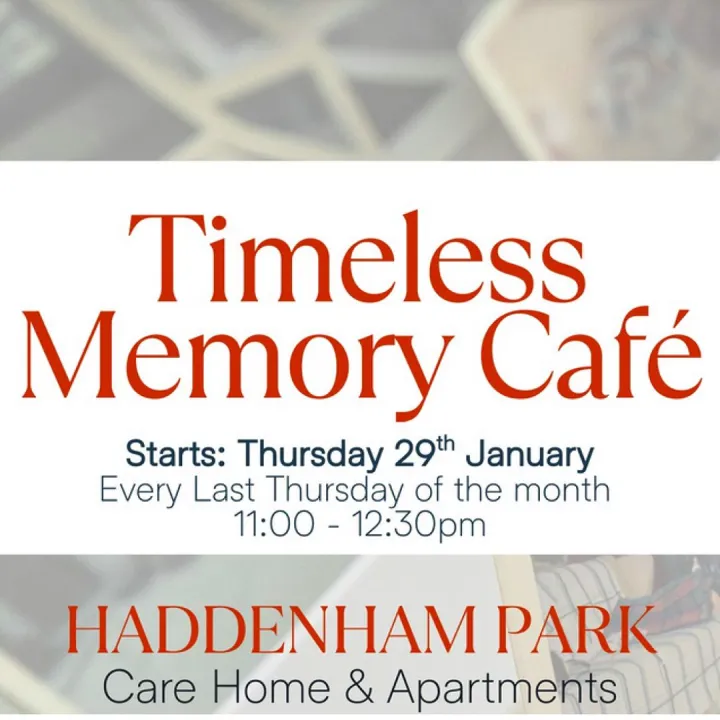Marking WW1 Armistice Centenary
On Saturday afternoon and evening, 10th November 2018, a moving presentation in St Mary's Church marked the Centenary of the WW1 Armistice.
Part One of the event offered "Music for Remembrance", directed by David Quinn.
Part Two was a play entitled "After The War Was Over" based on historical records of Haddenham and written and directed by Margaret Watkins.
A portfolio of images capturing a flavour of this historic occasion is now available in the Galleriessection of this website.
The DVD of Margaret Watkins' play will be available for sale at the Museum Anniversary weekend and thereafter in the Museum. The price will be £8.00 for Museum Members, £10.00 for non-Members.
Here is a review of the play, kindly written by Professor Sir Roderick Floud, Chairman of the Village Society.
"After the War was Over"
[A play written and directed by Margaret Watkins
Saturday, 10th November 2018 in St Mary's Church, Haddenham]
Review by Professor Sir Roderick Floud
Think back over the last four years to 2014. We've had two general elections, the European referendum, the election of President Trump, irrefutable evidence of climate change, as well as conflict in Syria, Iraq and the Yemen. Terrible events, but not in any way comparable to the four years between 1914 and 1918, with the evidence day after day after day of casualties, both military and civilian, mounting up inexorably to the final incomprehensible total of nearly 20 million.
Think of the four years of worrying that today would bring the dreaded telegram telling of the death of husband, father, son or grandson. 50 families in Haddenham received those telegrams. How long would it take, even after the war was over, to eradicate that memory?
The great achievement of Margaret Watkins and her 20-strong cast of Haddenham villagers was to locate the great global events of a century ago within a local context, to show our community struggling to overcome the traumatic events of World War One and its legacy of grief and pain.
The drama gained immeasurably from the fact that it was ordinary Haddenham people, our friends and neighbours, experiencing the conflicting emotions of the time much in the way that their predecessors must have done. There was joy that the war was over, there was pride in the sacrifices that had been made, there was deep sorrow at the lives that had been lost and the bodies that had been shattered. There was also hope for the future, at the end of the "War to end all Wars" and a determination to make Britain a fit place for heroes to live in.
Margaret Watkins' previous play about the First World War, which many of us remember as a powerfully emotional experience, was linked together by the school log-books of the headmaster of St Mary's School, who recorded not only the impact of the war on the school itself but the wider effects of conflict on the village. She faced in some ways an even greater challenge in exploring, without the benefit of that unifying theme or single source, the events of 1918 to 1923, as Haddenham gradually came to terms with what it had lost and began to look to the future. She skilfully wove together press reports and family archives.
Two series of events dominated the play: the first was the effort made by a war widow, Emma Rose, to rebuild her own life and to revive Haddenham through the construction and use of a Memorial Hall; the second was the simultaneous campaign for a fitting war memorial.
Emma herself, played with great panache by Hannah Austin, was able to move on, as did so many women who took a wider and wider role in the life of the village and of the country. She did not forget her first husband, William Rose, but married a local blacksmith, Rupert Balcombe (James Kershaw).
She and a group of her friends (Gillian Harvey, Sarah Wood, Katherine Stubbs and Sally Fleming), who showed poignantly how they had been scarred by the war, decided that Haddenham had had enough of mourning and must begin to look to the future, with a Memorial Hall where, soon after the opening, there was a fancy dress ball with a jazz band – very daring for the time.
The whole cast celebrated triumphantly, literally dancing in the aisles around the audience, with particularly spirited performances by Georgie Speer and two young children, Lyla Fitzpatrick and Rosie Speer. Music (and a splendidly florid M.C. at the ball, Mr J.C. Pim played by Andy Hardy) framed the events. The choir sang "Keep the Home Fires Burning" and there was a marvellous evocation of the time and its emotions by Cassy Childs, whose singing of "Bye, Bye, Blackbird" electrified the audience.
The effort to build the war memorial was appropriately more serious, as the Parish Council, led by its chairman Mr Merrick (Graham Tyack) deliberated on what could be done and led the village in fund-raising. Once they had succeeded they arranged a formal inauguration by a splendid Lord Lieutenant (Tony Robinson) while a later ceremony of remembrance was symbolised by a blessing from the longstanding Rector of St Mary's at the time, the Reverend Bruce Rhind (Andy Price). Their work is, of course, still marked each year as the village gathers round the memorial on Remembrance Day.
In retrospect, one knows that even by 1923, when the events of the play ended, the storm clouds were gathering. The post-war deflation, the result of what would now be called "austerity", was throwing millions out of work and leading to the General Strike of 1926 and to the long-term unemployment which disfigured Britain for nearly twenty years. The "war to end all wars" proved to be nothing of the sort, as the United States retreated into isolationism and European countries into nationalism and, soon, fascism and the rise of the Nazis. Some of this now seems eerily familiar.
"After the war was over" did not – quite reasonably – reflect any of this. Its strength came from its script, from the skilful blending of music, poetry and visual aids, from an excellent performance by all members of the cast and strong direction, but above all from its sense of time and place, of a community much like ours coming to terms with world events and with personal tragedies and joy.
It followed and complemented a varied programme of choral music by David Quinn and a Remembrance Music Choir including members of the Witchert Chorale. The music of war and peace, within a church decorated with red poppies and white doves, was accompanied by striking images of the impact of past and current conflict.
Together music and drama made a well-planned and well-executed tribute and commemoration by our village of events which, we must hope, will never be repeated.
Roderick Floud

